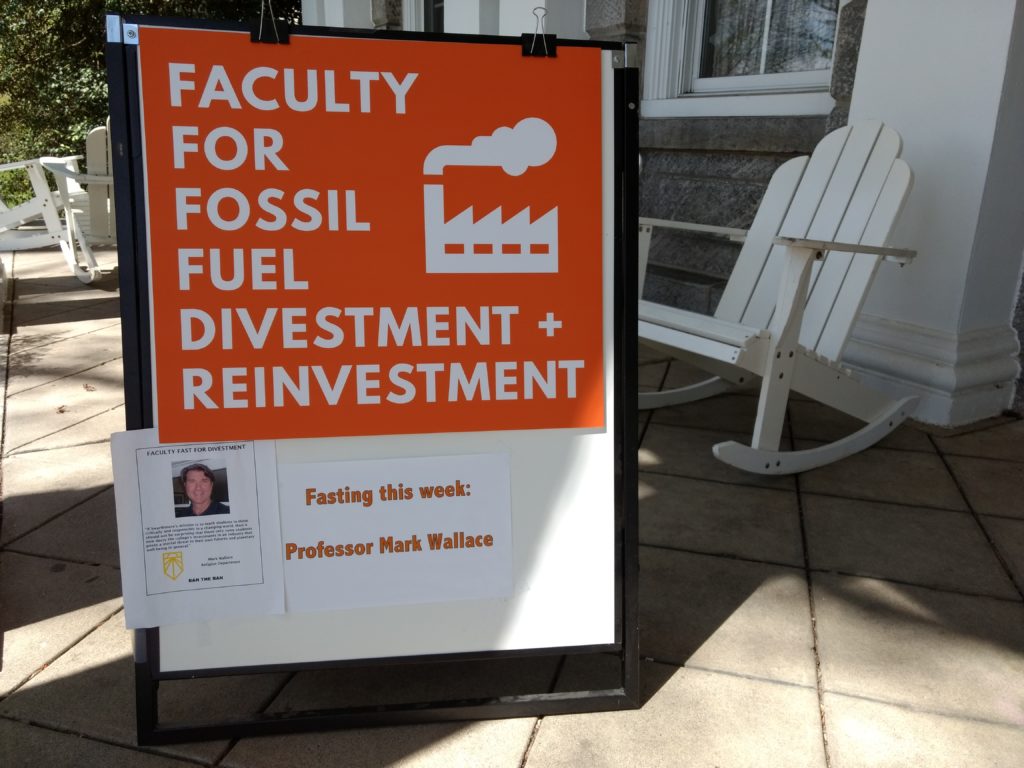
The student group, Mountain Justice / Sunrise Swarthmore, launched the global fossil fuel divestment movement at Swarthmore in 2012. Since then, as the planet has continued to warm, students, faculty, staff, and alums have researched, debated, signed petitions, held referenda, passed resolutions, withheld donations, published opinions, written white papers, participated in sit-ins and die-ins, and even fasted in appeals to the Board of Managers to reinvest the College’s endowment in alternative energy solutions. The Board of Managers reasserts the policy it established in 1991, after divesting from companies associated with apartheid in South Africa, that financial return should be the sole metric by which to make decisions about the College’s investments. Divestment from apartheid followed an eleven-year campaign by students and faculty.
In 2015, as students engaged in a 32-day sit-in at the Office of the Vice President for Finance, faculty circulated a petition and formally passed a resolution in 2015 calling for divestment of separately managed (not commingled) funds. The faculty’s deliberations centered around a thirty-page white paper penned by Chairs of ten academic departments at the College.
After five years of campaigning by students in Mountain Justice / Sunrise Swarthmore, in 2017, the student body voted in favor of fossil fuel divestment, and the faculty passed a second resolution reaffirming its 2015 call divestment. During spring semester 2018, five faculty members engaged in week-long water-only fasts, and students voted in another referendum, this time calling on the Board of Managers to abandon its post-apartheid 1991 divestment ban. The Board refused again.
Recently, a coalition of Swarthmore student groups, called Ban-the-Ban, has mobilized to challenge the Board of Managers’ post-apartheid investment guideline.